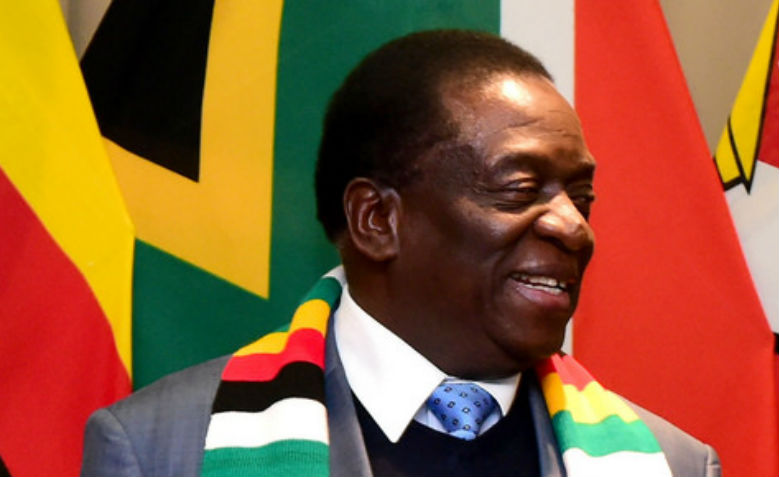 President of Zimbabwe, Emmerson Dambudzo Mnangagwa. Photo: Flickr / GovernmentZA
President of Zimbabwe, Emmerson Dambudzo Mnangagwa. Photo: Flickr / GovernmentZA
Western meddling across the Global South must end, argues Shabbir Lakha
When I wrote an article six months ago on Zimbabwe, the regime was cracking down on opposition protests following a falsified election that ensured Vice-President Emerson Mnangagwa succeeded the toppled Robert Mugabe as President.
Yet Western leaders and media remained relatively welcoming of Mnangagwa. They knew the regime was still authoritarian, but they also knew it was split between hardliners who were resisting reform and modernisers who hoped to turn westwards after Mugabe’s demise at the hands of his own army.
Even before the elections, Britain was signalling its hopes that Mnangagwa would turn westwards, and concrete acts like the first commercial bank loan by a British entity to Zimbabwe in over 20 years made clear Britain saw an interest in stability in Zimbabwe.
After the elections, Britain had to distance itself from the violence, but it still did so in ways which refused to rule out that change was possible under Mnangagwa. Harriet Baldwin, Minister for Africa, welcomed the peaceful vote but also underlined there had not been a level playing field, and condemned the violence after the vote in August 2018, which had seen at least six killed.
She then charted a way forward which did not challenge Mnangagwa’s legitimacy: “We call on President Mnangagwa to reach out to those who did not support him or his party in these elections, and work to build their confidence and trust. And we call on the opposition to play their part in the healing processes.”
As I predicted, however, western attempts to bridge the gap between the regime of the ruling ZANU PF party and the opposition MDC Alliance had western business interests at heart, not the welfare of the suffering people, who I said would soon be back on the streets.
This was indeed the case as the government passed economic measures that are best seen as senseless. In October 2018, it announced it was introducing a new 2% tax on money transfers, which would undoubtedly have a massive effect on the cash-strapped economy.
By January, fuel shortages had made petrol and diesel the most expensive in the world, sparking a general strike and mass protests. This was met with mass repression again, with over 600 arrests and 8 deaths according to Amnesty International. Trade unionists and socialists were among those detained.
Yet again, however, Harriet Baldwin was not daunted but re-iterated: “we are deeply concerned that Zimbabwe’s security forces have acted disproportionately in response… On 17 January I summoned the Zimbabwean Ambassador to highlight our concern at the ongoing situation in Zimbabwe.”
Contrast this kind of diplomatic approach with news that Britain and eleven European countries have joined America and Canada in recognising Juan Guaidó, the unelected opposition leader, as new interim president of Venezuela.
The lessons for so-called strongmen of the Global South are clear. You are safe as long as you make noises in private to the West that you are open for business. They have known this a long time, as is evidenced by American treatment of Somoza, the long-term dictator of Nicaragua.
President Franklin D. Roosevelt (FDR) reportedly said in 1939 that ‘Somoza may be a son of a bitch, but he’s our son of a bitch.’
The West will intervene abroad to protect its own in power, and will move to have its people installed in the Global South even when they have no democratic mandate. For the rich and powerful, democracy is only a story to be told when it is convenient, and discarded when it clashes with the interests of the capitalist metropolises.

